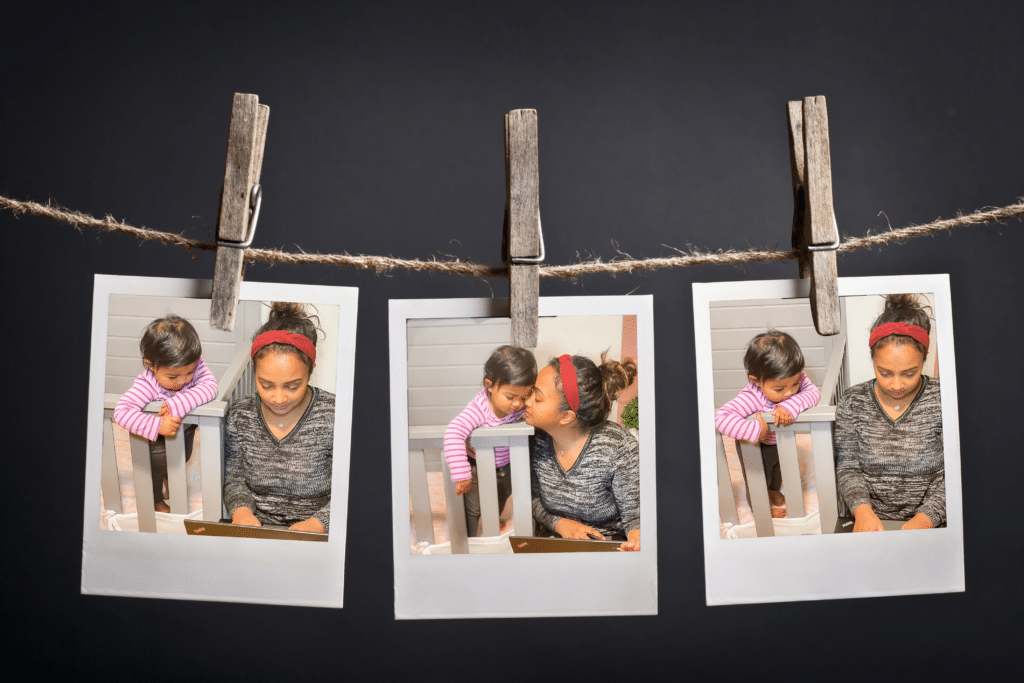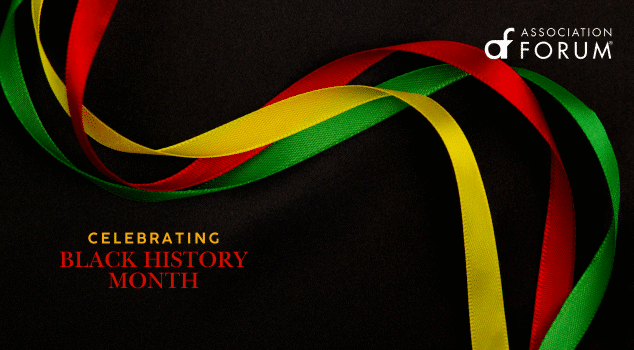Sorry for the Background Noise

I shrieked loudly as my bare foot landed on the most painful enemy known to parents—a bright red L-shaped LEGO piece. This pain is a familiar, shared experience between parents of toddlers.
The play area that houses this LEGO has become my new career backdrop. The cozy rocking glider where I once nursed my newborn daughter is now the office chair I sit on to attend endless WebEx meetings.
I heard stories of women who gave up their careers after maternity leave and took off a few years, or never returned to the workforce. Granted, some of those decisions were happy ones. But, others were less by choice. Some women want to return and never quite transition back into the workforce the way they planned. I know that the path to the c-suite is a long one, so I vowed to never allow myself to have a gap in my resume and “fall behind.”
It was almost as if that baby plan of mine was crumpled up into a tiny ball and chucked into a bin. Instead, I was handed the daunting task of caring for my three-month-old daughter, Noor, and returning to work, all without stepping out of the house. Those around me smiled – “oh how lucky,” “you get to see all the special milestones,” “extended maternity leave.” But, these reactions romanticized my situation and ignored the fact that I was expected to fulfill all of my job duties while also caring for my baby.
Prior to the pandemic, female representation in the workplace was trending in the right direction. Women make up 58% of the workforce and more women are in leadership positions today than ever before. According to Calalyst.org, in 2019, the proportion of women in senior management roles globally grew to 29%, the highest number ever recorded. But, no one could prepare for the catastrophic challenges 2020 would bring.
A recent article from McKinsey & Company entitled “Women in the Workplace 2020” uncovered data which predicts as many as 2 million women are now considering leaving the workforce due to burnout caused by the COVID-19 pandemic. Sadly, I am not surprised and I do not think it would shock any of my friends who are also working moms.
The COVID-19 pandemic has had an outsized effect on working mothers. As schools and daycares shut down, working moms were expected to be fulltime caretakers to their children while still fulfilling their professional responsibilities. A McKinsey study took a closer look at the challenges women are facing during the pandemic. Some of the concerns women noted included: lack of flexibility, feeling unable to bring one’s whole self to work, and worry that job performance is being negatively judged because of caregiving responsibilities during the pandemic. Even in households with two working parents, mothers are more likely than fathers to worry that their job performance is being negatively judged due to caregiving responsibilities [Women in the Workplace 2020, McKinsey & Company].
“Mothers are more than three times as likely as fathers to be responsible for most of the housework and caregiving during the pandemic.”
“…senior-level women are significantly more likely than men at the same level to feel burned out, under pressure to work more, and “as though they have to be ‘always on.’” And they are 1.5 times more likely than senior-level men to think about downshifting their role or leaving the workforce because of COVID-19. Almost three in four cite burnout as a main reason.”
Like the LEGO, my struggles during this time are a shared experience between working parents and working moms in particular. It’s no wonder two million of us are considering downshifting our careers. The McKinsey report states: “if these [two million] women feel forced to leave the workplace, we’ll end up with far fewer women in leadership—and far fewer women on track to be future leaders. All the progress we’ve seen over the past six years could be erased.”
McKinsey’s research revealed that many companies are taking steps to support employees during the pandemic. This includes sharing valuable information with employees, offering additional paid leave, supporting remote work, and sometimes expanding services related to mental health. But, the report continues, “fewer companies have taken steps to adjust the norms and expectations that are most likely responsible for employee stress and burnout.” Researchers found that less than a third of companies had adjusted their performance review criteria to account for the challenges created by the pandemic and only half updated employees regarding productivity expectations during this time.
Back in my nursery glider /office chair, I was coming to terms with my own pre-pandemic expectations. During my teleconference meetings, I would caution attendees that I was with my small baby, and I would apologize in advance for the “background noise.” Hearing myself diminish my own child’s cooing and babbling to background noise left me ashamed. These were just some of the many guilt-ridden thoughts floating around my brain. I would be lying if I said my volunteers were not understanding. People were extremely accepting and kind, but when discussions were going long, and I had a hungry baby waiting, I could not cut the meeting short to attend to my background noise (as much as I wanted to). The show had to go on and I always made sure it did.
As days went on and my little one reached new developmental milestones, I had to pivot and adjust my work style. From muting my line to run over and hand my daughter her toy, to asking my manager (several times) if we could hold off a few minutes for our meeting because I was putting Noor down for a nap, it was impossible to keep my two jobs separate.
I never quite figured out a rhythm to resolve the difficulty of the situation, but I was able to manage my own personal expectations and reevaluate what it means to have a good day at work. I set small weekly milestones for myself and practiced self-affirmations when the stressful moments began to consume me. When the lockdown restrictions began to slowly lift, I reached out for childcare help from family and friends who rotated through my house when I had important meetings. I became easier on myself if the entire to-do list was not checked off and I even took a step back from taking on any new professional development opportunities for the year.
Many days went on like this, the days became weeks, and the weeks became months. I am not presently speaking from the other side of the rainbow. My situation is not unique, in fact, my situation is the norm in most houses across the globe during this pandemic.
Unique or not, mothers’ shared experiences should not be whispered softly and only understood by the impacted parties, it must not be swept under the rug just because of the shared devastations the world has experienced. This information must be learned, appraised and addressed. If society expects to recover and continue towards gender equity in the workplace, we need to understand the impact of 2020 on working moms and how it has pushed them back from achieving their career goals, and even pushed some women out of their careers completely.
I did make one discovery during the pandemic, which I expect will cure my imposter syndrome for good. I discovered how remarkably capable and deserving I am—as a mother and career woman, all in one. I continue to persevere. Here I am, almost a year later, working late into the evening after putting my now 14-month-old to bed.
Tags
Related Articles
BAE Chicagoland Kicks Off: Join the Movement!
Black Association Executives (BAE) is officially in Chicagoland, bringing a bold new community to Black...
The Weight We Carry: What Teams Wish Leaders Understood
Association professionals are feeling the strain of relentless change—burnout, shifting expectations, and emotional fatigue are...
Workforce to Hit 30% Gen Z by 2030: Ready or Not?
Gen Z isn’t lazy—they’re reshaping work with speed, collaboration, and purpose. Here’s how to engage...




